Women scientists meet their role models
This week it was Women in Science Week, culminating in the meet-up event held Wednesday afternoon at the Atlas building. During this event, attendees listened to Tila Pronk’s keynote, the winner of the Marina van Damme grant was announced, and attendees had the chance to speed-date with 19 female role models from science and business.
The second week of February was Women in Science Week at TU/e, a week that draws global attention to scientific contributions made by women and girls. The annual event was marked on February 11 by the International Day of Women and Girls in Science, a day that highlights the importance of women scientists and students in a field often dominated by men.
At TU/e, this year’s Women in Science Week was celebrated with the launch of an online video series, Driven By Challenges, in which five women scientists present their work in sustainable technologies, as well as a five-year retrospective of the Irène Curie Fellowship Program. This program aims to promote gender balance in science and support women in their scientific careers.
Fifty new connections
The highlight, however, took place on February 12, during the meet-up event that TU/e organized together with WISE Network and Fontys Engineering. Over two hundred participants – mainly women, but also some men – gathered for this event in Atlas on Wednesday afternoon. In her opening remarks, moderator Cindy de Koning emphasized the purpose of the meeting: to make female scientists visible, to inspire each other, and to network. “Let’s make sure you make fifty new connections today,” she said to encourage the attendees.
In her welcome speech, Rector Silvia Lenaerts discussed the importance of diversity in science. “Women often bring a different perspective, which is valuable. But we also need their knowledge, expertise, and skills.” She urged the women present not to change who they are: “Stay true to yourself and don’t adapt too much. It’s precisely these different perspectives that are needed for diversity.”
Dot on the horizon
Then, the women protagonists of season 3 of the video series Driven By Challenges took the stage. This series follows young female scientists and technologists as they work on groundbreaking innovations. Presenter Liselotte Graas, who herself became world champion with team Solar in Australia, followed them on their road to success.
One of them is Beatrix Bos, TU/e graduate and project manager at Carbyon, a company developing an innovative technology to capture CO₂ from the air. “You have to put a dot on the horizon and pull out all stops to get there,” Bos said to illustrate her strategy. “Even if you end up achieving less than you had hoped, without such a dot you won’t get anywhere.” Wieteke de Boer, managing director of EHCI, the TU/e institute for photonics (and other things), also looked back on her career path and what she has achieved. She admitted that she’s not always aware of her role as a female leader. “I don’t see myself as the female managing director.”
Paradox of choice
This was followed by the keynote by Tila Pronk, associate professor of Social Psychology at Tilburg University and a familiar face in the media world, most notably for her appearance on the TV show Married at First Sight. Love is central to her research, and Valentine’s Week is therefore one of the busiest periods of the year for her, professionally. Sure enough, she had been invited to this event to unravel some of the secrets behind love.
“Love is not a luxury item,” she explained. “It’s as essential as water or air.” She backed up her statement with scientific facts: a lack of connection is worse for physical health than obesity, and lonely cancer patients have a smaller survival rate than those with a strong social network.
Yet in this day and age, it is harder than ever to make real connections, she argued. Dating apps make us connect primarily digitally, and while the supply is vast, that abundance doesn’t help us – it actually paralyzes us. To illustrate this ‘paradox of choice’, she showed a picture on the screen of a rabbit among a huge pile of carrots. “Out of all those carrots, how do you choose the perfect one?” she asked rhetorically. During an average swipe session on Tinder, users are presented with over a hundred potential matches. “That seems great, but the opposite is true,” Pronk explained. “The more options we have, the harder it becomes to choose. And when we finally choose, we are left with doubts: was this really the best option?”
Pronk also shared her own career story. Due to the high publication pressure, she initially left science and doubted her future. Only when she let go of expectations and focused on what really gave her energy – sharing knowledge about love – did she find her way back to academia. She now works as a lecturer and researcher at Tilburg University, has written two books on love and was elected lecturer of the year in 2022. “I am successful because I do what I love,” she emphasized. Not by pursuing academic titles, but by following her own path.
Discovering and fulfilling your purpose
Another of this afternoon’s special guests was Marina van Damme, at 94 the oldest female engineer in the Netherlands. Van Damme was the first PhD graduate of the former Technical College of Twente and has devoted her entire life to supporting and encouraging other talented women in science. Each year, she awards a €9,000 grant to young female talent at all four universities of technology in the Netherlands. This year the Marina van Damme grant was awarded to TU/e alumna Marina Pilz da Cunha, who unfortunately couldn’t be present, but expressed her gratitude in a video message. She said she will use the money to develop color-changing product labels that indicate shelf life in real time.
“I would like to see every woman fulfill her purpose – not only during her professional career, but also afterwards, because that process should never stop. Your purpose is already inside you; it’s up to you to discover it. The grant encourages you to think about that: who are you and who do you want to become?” Van Damme said, sharing her inspiring message.
Speed dating with role models
The event concluded with a speed dating session, with the 19 female role models seated at individual bar tables. Participants could join them at their table and ask questions for ten minutes. After ten minutes, a musical signal sounded, after which they moved on to the next table to speak again with another role model. This gave the young women participating the opportunity to speed-date with six different female role models from various fields in one hour, engaging in informal discussions about their career paths. The conversations were held in an open and relaxed atmosphere, ranging from light-hearted to more serious topics.
The direct conversation with the role models in an informal atmosphere made many participants feel that they can achieve the same success too. “I found it especially inspiring to hear the story of Sveta Zinger (professor at the TU/e Department of Electrical Engineering, ed.), because like me she is from Ukraine. Seeing role models who come from the same region makes the parallels between us stronger, which is very important,” said Nataliya Lushnikova, postdoc at the Department of the Built Environment, who had participated in the session.
Encouraging young girls
One of the themes discussed was encouraging young girls to follow their passions and develop their talents. The participants in one of the groups agreed that you can’t start this early enough – preferably in elementary school already. “If you miss that crucial phase and only start working with young adults, you’re actually too late already,” one of the women commented. Unfortunately, in practice the exact opposite often happens. For example, one of the participants said that her daughter, who is extremely passionate about math, was told by her teacher in elementary school that math was something for boys. “Kids look up to that kind of authority figure. If someone says to you, ‘you can’t do this,’ or ‘this is not for you,’ you automatically start to believe it,” added another.
The role models showed their vulnerability during the interviews, with many of them freely admitting that they too had regularly encountered resistance or had been at a loss for words. It was striking that many of them hadn’t followed a perfect path, but had found their way via side roads, in which success was accompanied by trial and error. Isabelle Reymen, professor of Design of Innovation Ecosystems as well as general manager and scientific director at TU/e innovation Space, also experienced this. Initially, she was told that her ambition was impossible, and she found it challenging to combine two demanding positions. She has since learned that the road to success always has obstacles, and that when others say something can’t be done, you shouldn’t immediately take their word for it. Her message? “Don’t give up and go for it.”
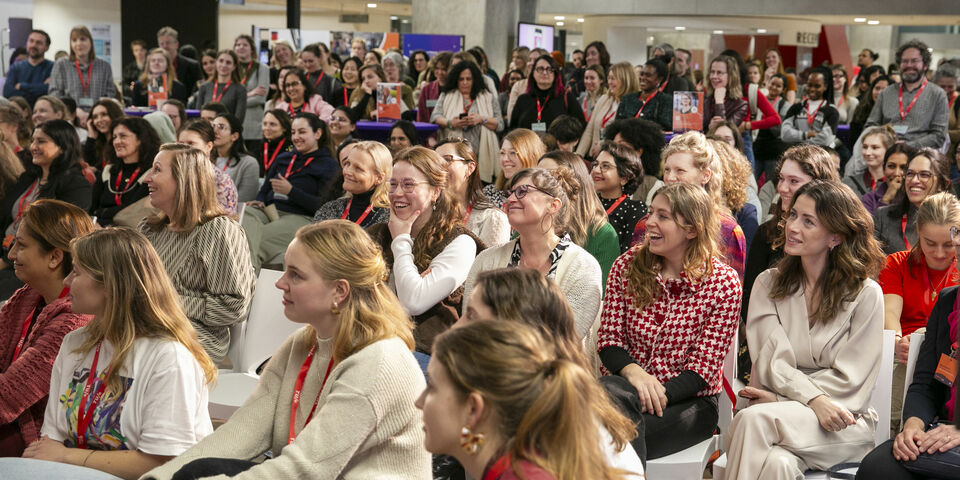

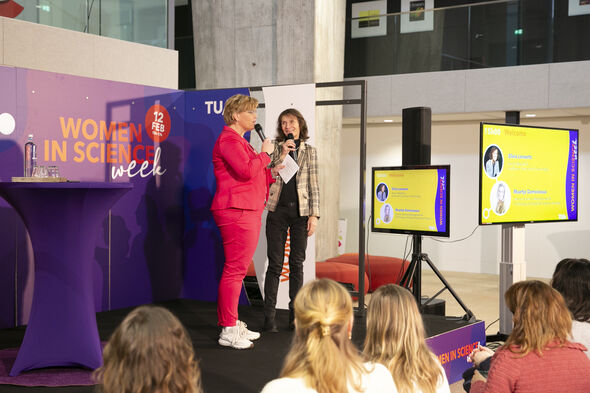
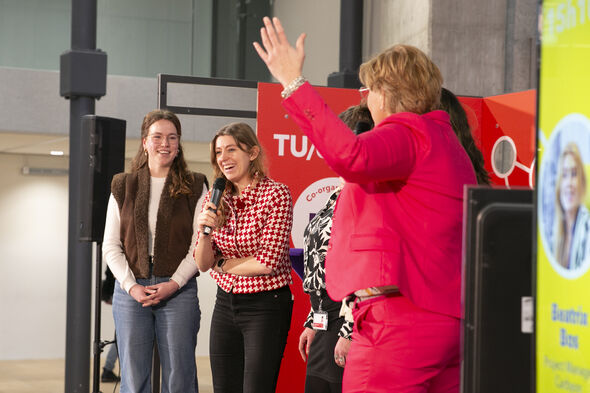
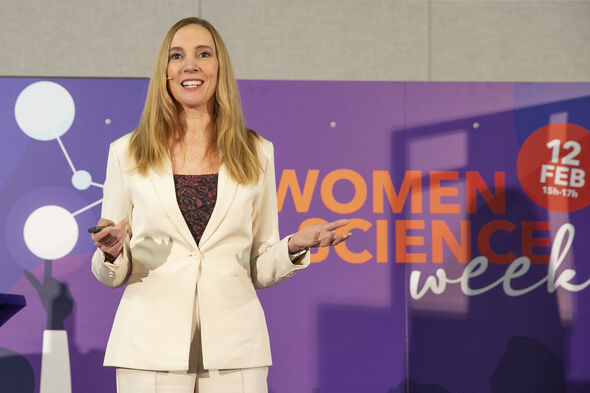
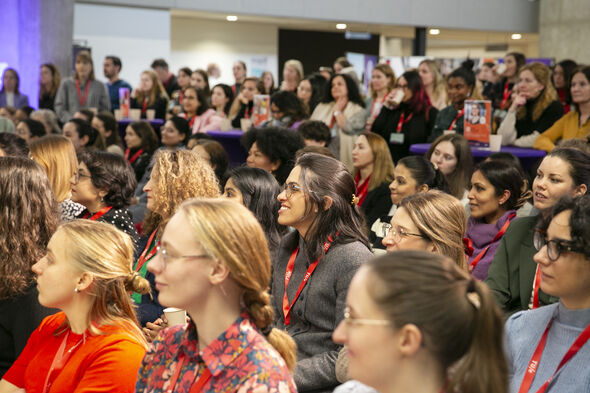
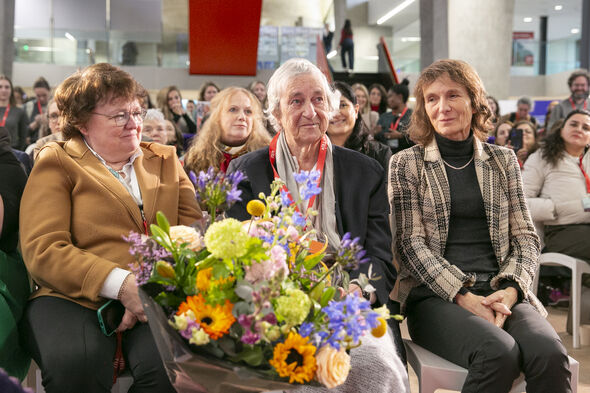
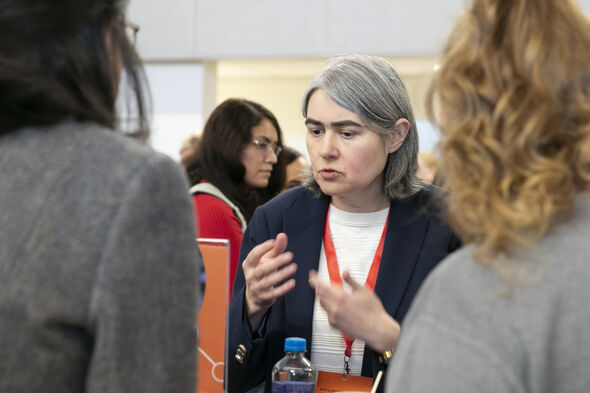
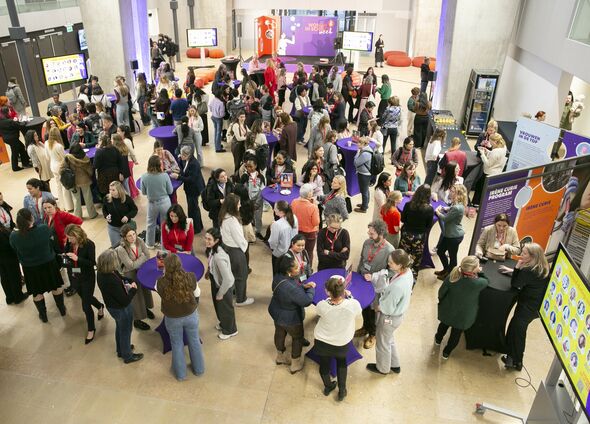
Discussion